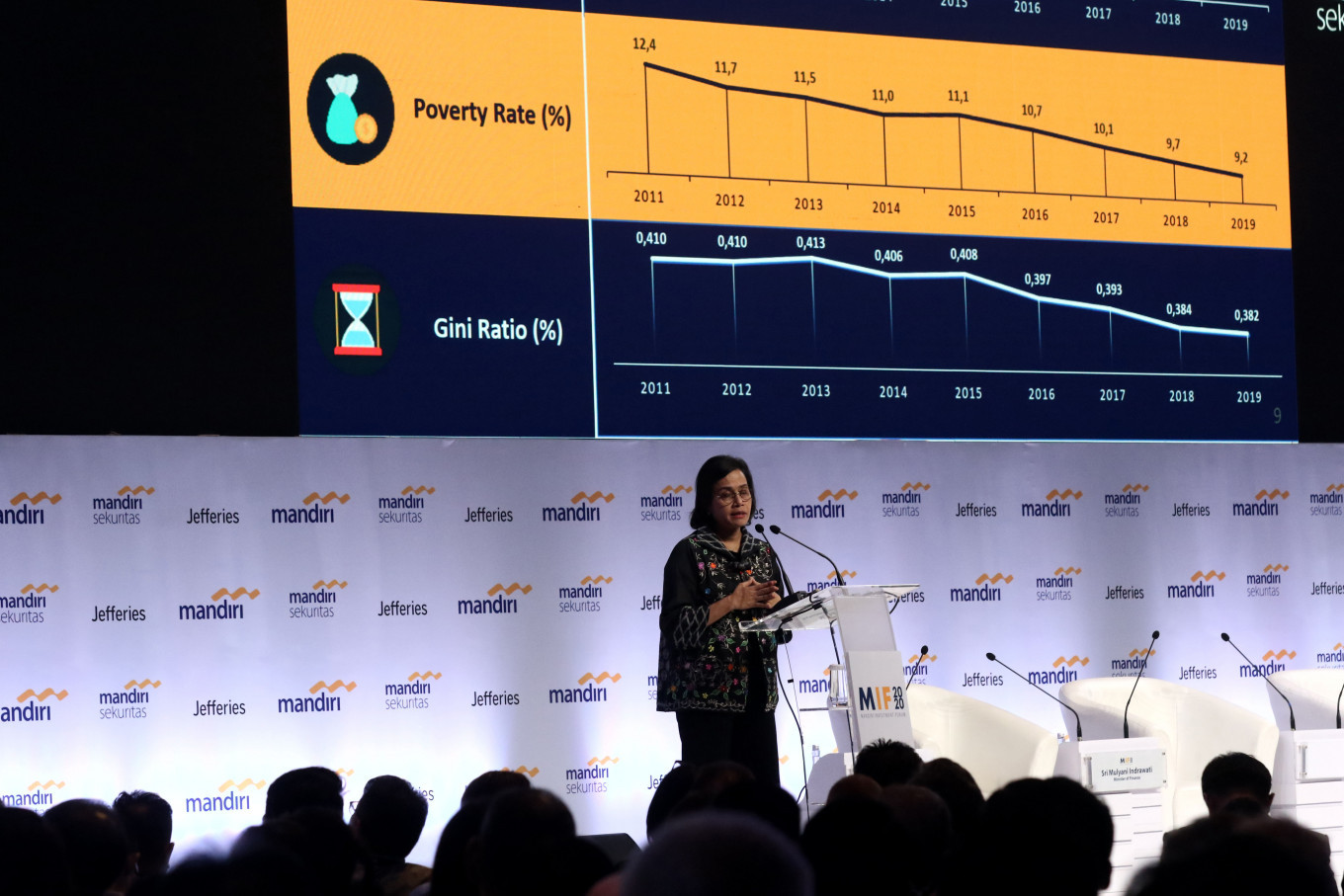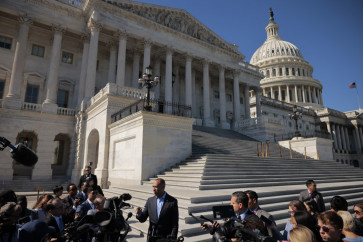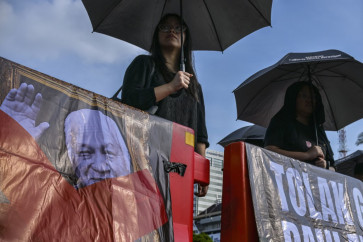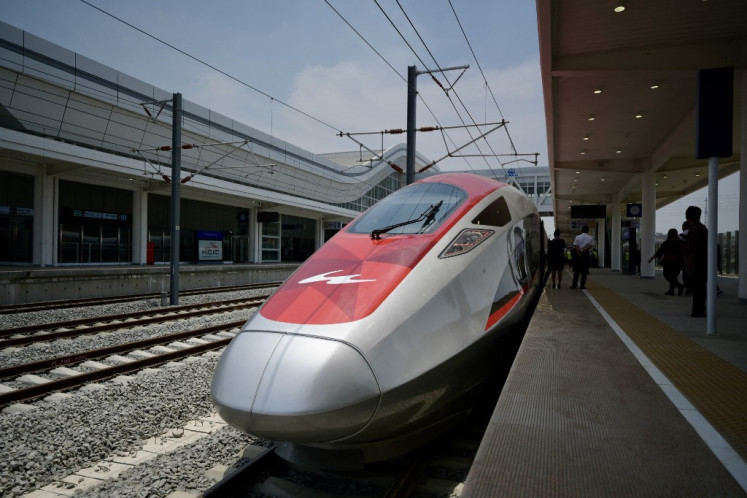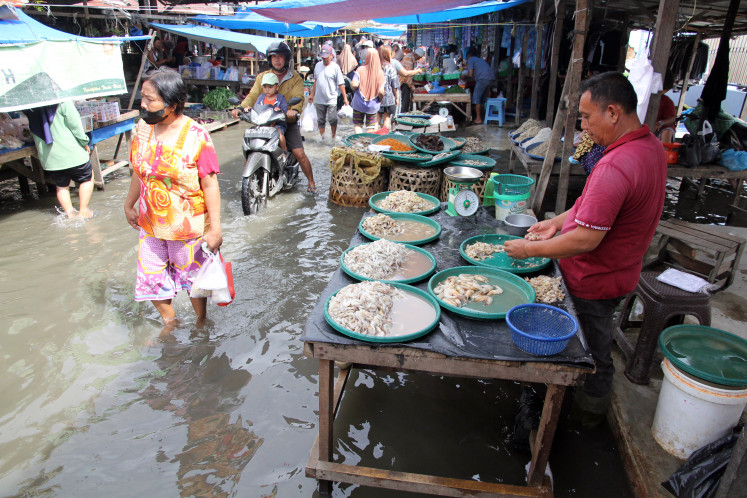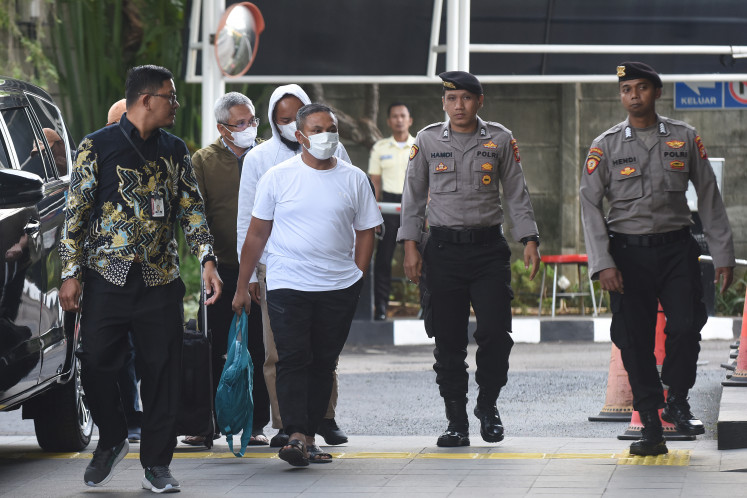Popular Reads
Top Results
Can't find what you're looking for?
View all search resultsPopular Reads
Top Results
Can't find what you're looking for?
View all search resultsIs Indonesia competitive as investment destination?
Foreign business actors who have been subject to antidumping duties will continue to transport their goods into the free-trade zones and free ports.
Change text size
Gift Premium Articles
to Anyone
The government has an obligation to maintain the competitiveness of the country as an investment destination. Recently, President Joko “Jokowi” Widodo signed the Job Creation Law. This effort must be continued by amending several laws and regulations that weaken the competitiveness of investing in Indonesia.
Many provisions have escaped the attention of the government when passing the Job Creation Law, including the obligation to provide an Indonesian translation of an agreement that is written in English based on the Law on Flag, Language, Emblem and the National Anthem.
Several years ago, due to the absence of an Indonesian translation of an agreement written in English, the Supreme Court invalidated a loan agreement for a foreign creditor. However, foreign investors are important as they can provide job opportunities in Indonesia.
Not only that, but the competitiveness in protecting foreign investors is also disrupted due to a trivial problem related to the elucidation of a government regulation. Government Regulation No. 10/2012 concerns the treatment of customs, taxation and excise, as well the procedure of insertion and release of goods from and to and in the area that has been established as a free-trade zone and free port.
In the elucidation of Article 14 of the government regulation, it is stated that "included in the definition of import duty are the antidumping duty, compensation duty, safeguard duty and countervailing duty”. The elucidation contained in Article 14 is very inaccurate as the imposition of antidumping duty, compensation duty, safeguard duty and countervailing duty (trade remedies) cannot be classified as an import duty.
Although it seems insignificant, in fact, this problem has disrupted the healthy competition in several industrial sectors, such as steel. Apart from that, this is also a special concern for foreign investors who have long invested business capital in this country.
Under international trade law, antidumping duties and compensation duties are methods for a state to impose sanctions on business actors from other countries who are conducting unfair trade. If so, then why is the imposition of trade remedies exempted in the free-trade zone and free port?
Under Article VI of the 1994 General Agreement on Tariffs and Trade (GATT 1994), one of the examples of unfair trade is dumping. In paragraph (1) Article VI of the GATT 1994, dumping is defined as “products of one country introduced into the commerce of another country at less than the normal value of the products, are to be condemned if they cause or threaten material injury to an established industry in the territory of a contracting party or materially retard the establishment of a domestic industry”.
In dealing with unfair trade, countries are allowed to make policies that are called trade remedies. Trade remedies are policies that allow the government of a country to take corrective action against imports from business actors in other countries that cause losses to the domestic industry.
Regarding trade remedies for dumping, it is stipulated under paragraph (2) of Article VI of GATT 1994 that "in order to offset or prevent dumping, a contracting party may levy on any dumped product an antidumping duty not greater in amount than the margin of dumping in respect of such product”.
In the explanatory notes of the agreement establishing the World Trade Organization, it is stated that "the terms ‘country’ or ‘countries’ as used in this agreement and the Multilateral Trade Agreements are to be understood to include any separate customs territory Member of the WTO”.
Based on these explanatory notes, the term “state” includes the special territory of a member country, including free-trade zones and free ports.
Therefore, it is odd if in the elucidation of Article 14 of GR No. 10/2012 that antidumping duties are exempted.
This will weaken the competitiveness in ensuring foreign investors will remain in Indonesia or even to invite new foreign investors. The basic reason for this statement is because foreign business actors who have been subject to antidumping duties will continue to transport their goods into the free trade zone and free ports.
Based on the results of an in-depth investigation conducted by the Indonesian Antidumping Committee (KADI), it is stated that foreign business actors have been proven to cause losses to the domestic industry.
Furthermore, it is necessary to impose antidumping duties so it will not continuously harm foreign business actors who have invested, the domestic industry and this country. Based on the Supreme Audit Agency (BPK) audit report on the 2018 central government financial statements, it is stated that with the absence of the imposition of antidumping duties by the Customs and Excise Directorate General on the exclusion of raw materials from free trade zones to other places in the customs area, this country has the potential to accumulate a loss of Rp 34 billion (US$2.41 million).
The potential loss of import duty for steel products through the Free Trade Area seems small in value, but there is a big issue that steel industry producers have complained about and the Finance Ministry has responded since the implementation of Government Regulation No. 10/2012.
As a result, the antidumping duty for the import of steel products has been applied twice, through the Finance Ministerial Regulation No. 50/2016 that has ended and Finance Ministerial Regulation No.111/2019 that is valid until 2024.
In plain sight, there is a problem in the implementation of Government Regulation No.10/2012, not only because it could potentially generate losses in the national income, but also because there is an illogical injustice for domestic players.
These will definitely have an impact on the related industry for its products. Some of them are local steel industries that are trying to fulfill domestic needs, and some of them are local shipyard industries that are outside of the free trade area. Both of these industries have solid capital and technologies and are labor-intensive.
In addition, it seems that the maritime state visions, such as the optimization of sea traffic as well as the independence of procurement of sea transportation equipment through the use of local materials, may take some time to accomplish.
As such, the government should amend Government Regulation No. 10/2012, especially the elucidation of Article 14. Amendments should be made so that the definition of duties does not include the antidumping duty, compensation duty, safeguard duty and countervailing duty.
***
The writer is a professor of international law at the University of Indonesia, Depok, West Java and rector of Jenderal A. Yani University, Bandung, West Java.

